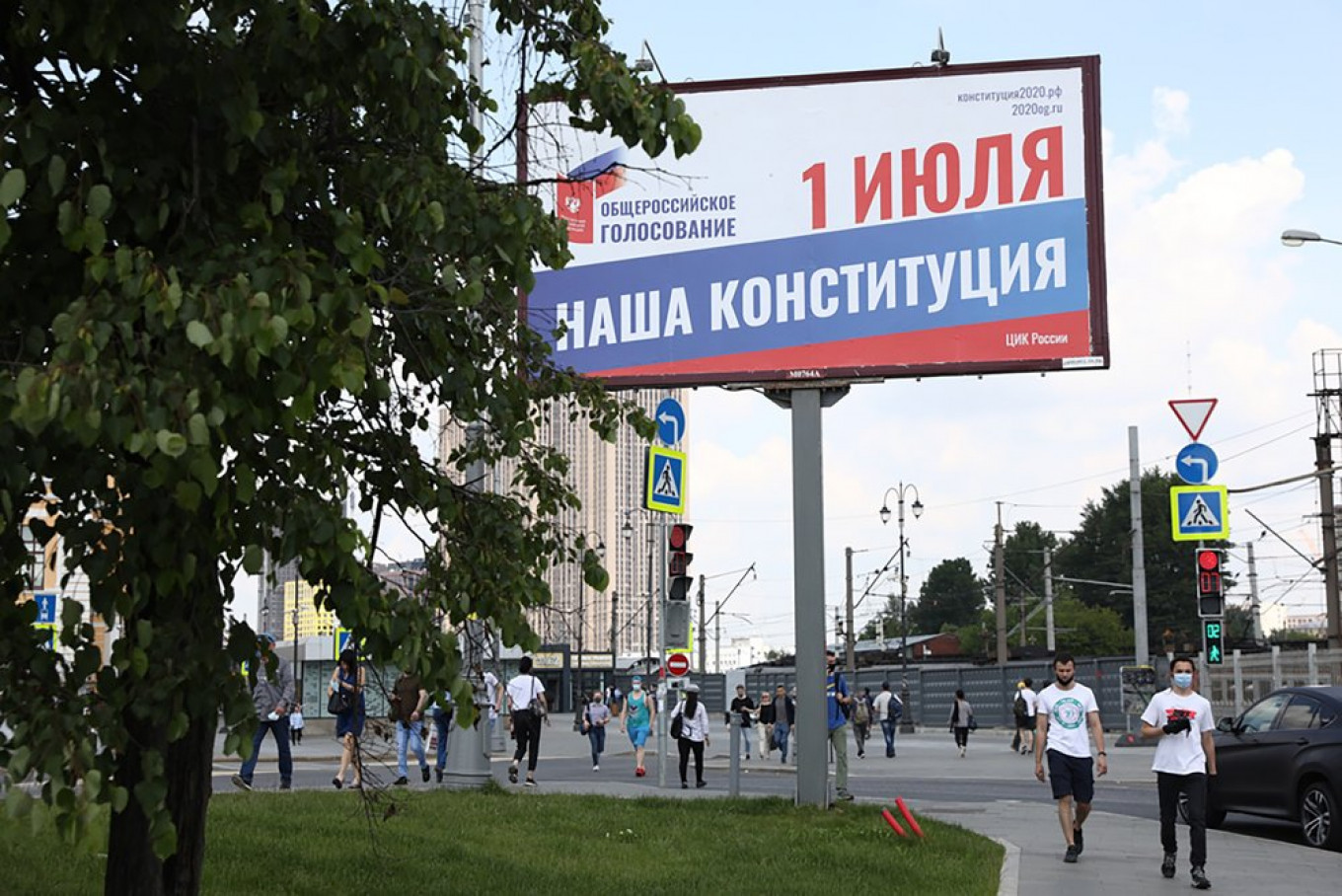
Moscow authorities plan to attract voters for next month’s public vote on constitutional reforms that would allow President Vladimir Putin to rule Russia until 2036 with prizes totaling almost $144 million.
The constitutional amendments, in addition to adding social guarantees to Russia’s basic law, reset Putin’s four previous terms as president, allowing him two additional six-year terms from 2024-2036. Public polls have said that close to a majority of Russians plans to vote in favor of the amendments.
The Moscow mayor’s office will begin rolling out its “Million Prizes” program on June 25, promising to give away 2 million vouchers to voters that can be exchanged for goods or services until the end of 2020.
The program continues a Soviet tradition of offering food to voters at polling stations. More recently, most Russian regions held giveaways and contests at voting sites during the 2018 presidential election.
First Deputy Director of the Mayor’s Office Alexei Nemeryuk characterized the 10 billion ruble ($144 million) program as the business community’s proposal to “stimulate consumer demand” after many businesses were hit hard by the coronavirus lockdown.
“Those who vote online or go to the polls will receive a unique digital code and points will be raffled off,” Nemeryuk said at a briefing organized by the state-run TASS news agency.
Russians have been offered a range of options to vote for the constitutional amendments, including in-person voting between June 25 and July 1 or online in Moscow and the Nizhny Novgorod region. Residents of some remote areas have already cast their ballots early.
More than 3,000 stores across the city, including major retailers and restaurants, will participate in the program, which runs until Dec. 31.
Around 350 election officials across the country have meanwhile refused to administer the vote, citing the risk of spreading the coronavirus. The boycott does not appear likely to affect the vote, given that at least 1 million election officials will help organize it.
Critics have also accused authorities of campaigning for the amendments while banning campaigns against the vote, which election officials have rejected. Officials have also rejected reports that state workers are being coerced into registering to vote online.

Leave a Reply